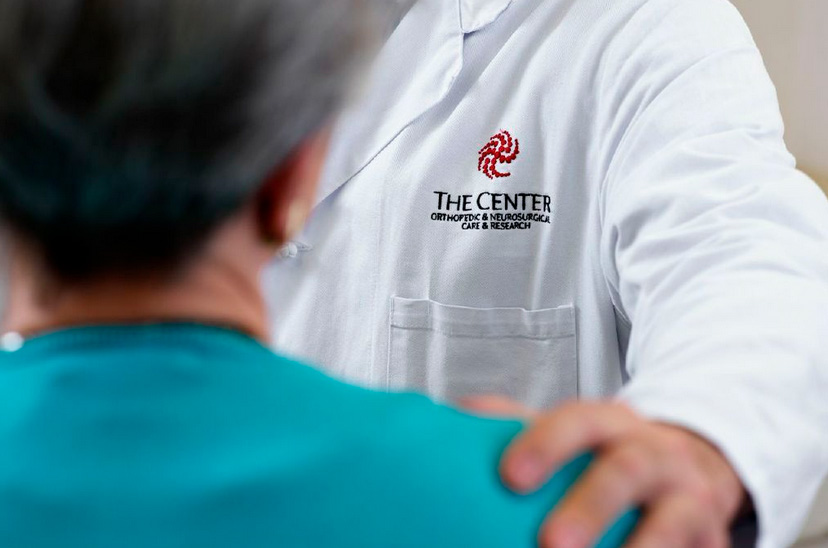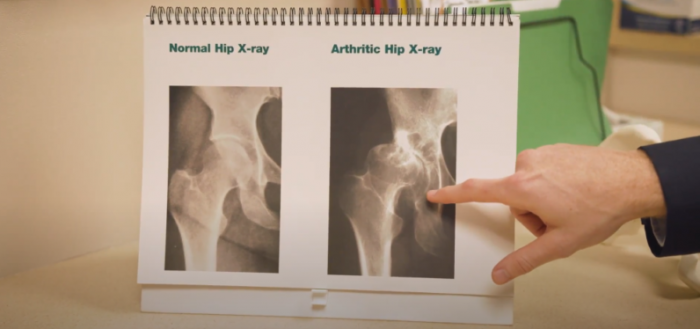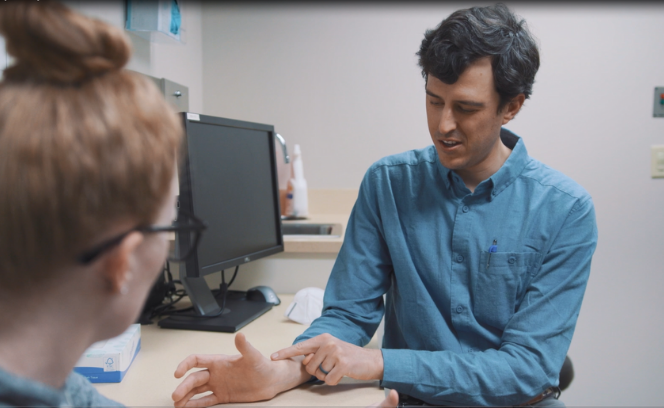
What is a physiatrist?
Physical Medicine and Rehabilitation (PM&R) physicians, also called physiatrists, treat a wide variety of medical conditions. This medical specialty emphasizes the prevention, diagnosis, treatment, and rehabilitation of disorders that produce temporary or permanent physical impairment. The PM&R providers at The Center specialize in restoring optimal function to patients with injuries or conditions of the muscles, bones, tissues, and nervous system. These rehab medicine specialists have completed a high level of training in physiatry, including four years of medical school and four years of residency training.
Physiatrists have broad medical expertise in neuromuscular medicine that allows them to treat a wide variety of conditions throughout a patient’s lifetime. They are not surgeons – instead, they focus on optimizing function through the use of customized non-surgical treatment plans involving non-surgical strategies and tools.
Some of the conditions our PM&R doctors specialize in include:
- Musculoskeletal Disorders: This encompasses conditions like arthritis, acute neck or back pain, acute joint pain, and muscle strains. Physiatrists use various techniques to alleviate pain and improve functional ability.
- Neurological Disorders: Physiatrists treat a variety of neurological conditions including spinal cord injuries, stroke, brain injuries, cerebral palsy, and multiple sclerosis.
- Orthopedic Conditions: This includes fractures, tendonitis, and ligament injuries. Physiatrists are skilled in providing rehabilitation after surgeries related to these musculoskeletal conditions.
- Chronic Pain Syndromes: PM&R doctors also treat patients experiencing consistent numbness, tingling, weakness and various chronic pain disorders.
- Injuries: Physiatrists are essential in treating injuries in various contexts. They work with athletes to restore performance in sports injuries, aid individuals in returning to work after occupational injuries, and address musculoskeletal and neurological challenges in motor vehicle injuries. Physiatrists also specialize in the comprehensive management of concussions and traumatic brain injuries.
- A variety of neurological conditions including spinal cord injuries, stroke, brain injuries, cerebral palsy, and multiple sclerosis
Physiatrist Treatment for these Conditions Might Include:
- Physical therapy
- Injection therapy
- Medication
- Movement and activity modification
- Concussion management programs
- EMG/nerve conduction studies
- Prosthetics and orthotics
The variety of tools physiatrists use enables them to tailor treatment plans to address specific challenges for any patient. They strive to treat the whole patient – not just the specific injury or condition – which improves overall recovery and prevents recurrence.
Physiatrist vs Orthopedic Surgeon
A physiatrist, or Physical Medicine and Rehabilitation Physician, is a medical specialist with expertise in managing musculoskeletal and neurological conditions. They emphasize non-surgical interventions aimed at enhancing mobility, function, and overall quality of life. Physiatrists employ a comprehensive approach, utilizing techniques such as physical therapy, occupational therapy, medications, and non-invasive treatments. They are adept at coordinating care within a multidisciplinary team.
On the other hand, an orthopedic surgeon is a surgical specialist who specializes in the operative treatment of musculoskeletal disorders. They have undergone extensive surgical training in orthopedic surgery and are proficient in a wide range of surgical procedures, including joint replacements, spinal surgeries, and fracture repairs. Orthopedic surgeons also evaluate and diagnose conditions, and when necessary, recommend surgical interventions.
The choice between consulting a physiatrist or an orthopedic surgeon is contingent upon the nature and severity of the condition. It is worth noting that in many cases, these specialists collaborate closely within a healthcare team to provide comprehensive care for patients, ensuring that the most suitable treatment approach is pursued.
Why there is a growing need for physiatrists
The growing need for physiatrists can be attributed to several key factors including:
- Aging Population: As the population continues to age, there is an increasing prevalence of musculoskeletal and neurological conditions that require specialized care. Physiatrists are uniquely equipped to address the complex needs of older adults, including managing chronic pain, improving mobility, and providing rehabilitation after surgeries or injuries.
- Prevalence of Chronic Conditions: Conditions like chronic pain, arthritis, and neuromuscular disorders are becoming more prevalent. Physiatrists are skilled in developing comprehensive treatment plans that focus on improving function and quality of life for individuals with these chronic conditions.
- Focus on Non-Surgical Interventions: With a growing emphasis on conservative, non-surgical approaches to healthcare, physiatrists play a critical role in providing alternatives to surgery. They employ a range of techniques, including physical therapy, medications, injections, and assistive devices, to help patients achieve optimal outcomes without resorting to surgery.
- Sports Medicine and Rehabilitation: There is a heightened awareness of the importance of comprehensive rehabilitation in sports medicine for athletic injuries. Physiatrists are instrumental in developing rehabilitation programs to help athletes recover from injuries, regain strength and flexibility, and return to their sport safely.
- Demand for Multidisciplinary Care: In many cases, patients benefit from a team-based approach to care, involving various specialists and occupational and physical therapists. Physiatrists are skilled in coordinating care among different healthcare professionals, ensuring that all aspects of a patient’s condition are addressed.
At The Center, physiatrists work with other experts and physicians on staff to ensure that all methods of healing, treatment, and therapy are explored, addressing both symptoms and their causes. Visit our team page to get to know our expert team of board-certified physiatrists.
Keep up to date on future webinars and events and receive information on living a healthy and pain free life from our providers by joining our monthly newsletter. Click below to sign up!





